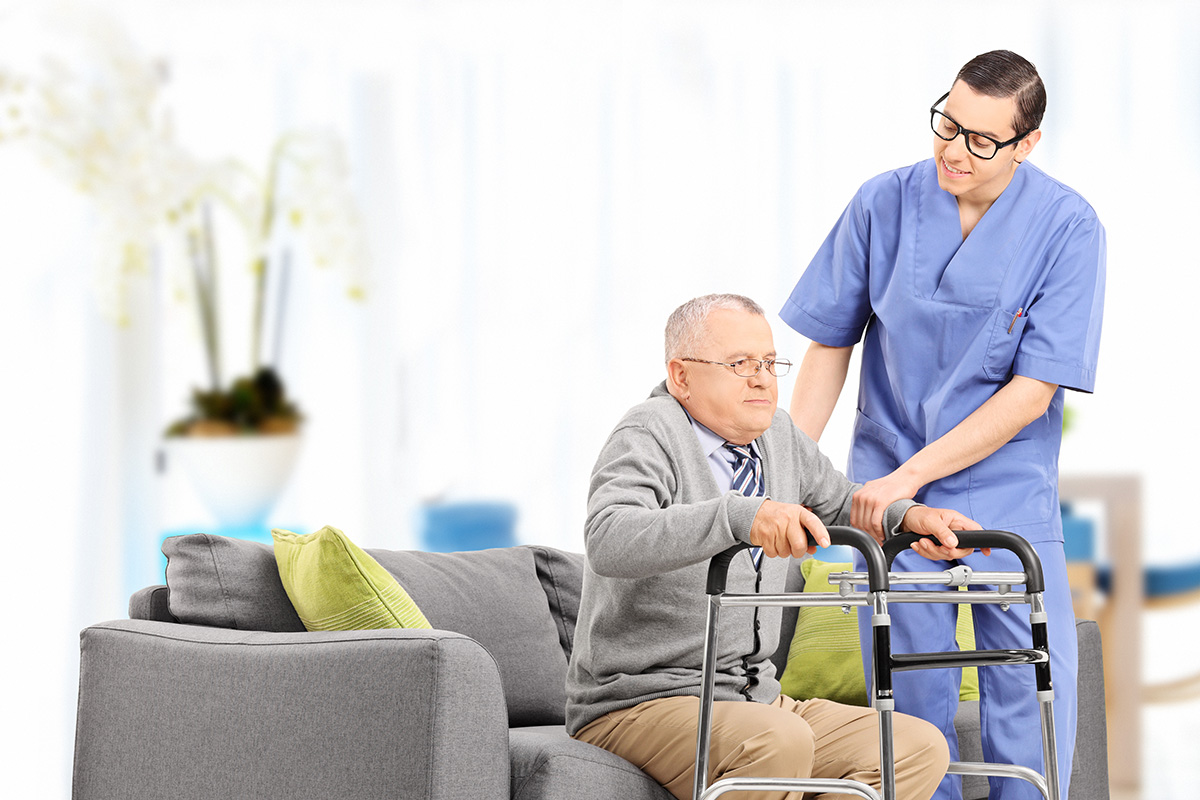- HOME
- SERVICES
- WHERE TO BEGIN
- LOCATIONS
- RESOURCES
- HEALTH PLAN SERVICES
- CAREERS
- EMPLOYEES

Checklist: Returning Home from a Hospital Stay
After a hospital stay, older patients often can’t wait to get back to the comfort of their homes. And research shows that patients tend to experience better recoveries at home, with better outlooks on their well-being and the pleasure of being in an environment in which they’re most comfortable.
It’s important, though, to remember that you or your loved one may still be in the recovery process upon returning home, which means there may be special considerations that need to be prepared before a patient’s return.
Do you have family or friends who can help you prepare your loved one’s home for his or her return? Be sure to discuss your needs with your discharge planner and ask about home health care providers that can provide you with whatever help you need.
Talk to your physician and discharge planning staff about prescribed regimens for exercise and/or medication. Be sure to go through the checklist with your doctor and ask if he or she has recommendations to add to the list.
We’ve put together a basic checklist to help you begin your conversations and plans to make the return home a happy and healthy one:
Prescribed Regimen
- Be sure to have a list from your doctor of all medications you or your loved one will need, the doses, and schedule. Share this information with your home health care provider.
- If a visiting physical therapist will be coming to your home to maintain a PT routine, be sure to discuss a schedule and coordinate with your home health aide.
- Know your recommended schedule when you visit your doctor and discuss this with your home health aide and/or family and friends who will be able to transport you to them. Can arrangements be made for home visits from your doctor?
Equipment Needs
- Will you need to arrange for equipment such as a Continuous Passive Motion Machine (CPM) for physical therapy at home or oxygen tanks to be delivered?
- Be sure to discuss proper use of any needed equipment with your doctor, home health aide and any family and friends who will be helping you.
- Is there space cleared within the home to accommodate any needed equipment?
- Make sure to receive an orientation on proper equipment use prior to leaving the hospital.
Home Preparation
- Is the home prepared in terms of mobility? Can a walker or wheelchair pass around furniture and down hallways?
- Be sure to avoid falls by clearing clutter (including cords and wires). Remove or secure area rugs, and ensure that floorboards are flat and even.
- Ensure the home is well-lit, and set up nightlights for middle of the night movement.
- Ask if you can be referred to an agency that will conduct a home safety evaluation.
Basic Day-to-Day Supplies
- Make sure sleeping arrangements are made to reduce the need for excessive stair climbing.
- Make sure that supplies like clothing and toiletries are on the same floor that you or your loved one will be sleeping and spending time.
- Stock up on easy grab-and-go food to avoid the need to prep and cook. Or, are arrangements being made for meals through home health care, “Meals on Wheels,” or friends and family?
- Make sure arrangements are made to fill the proper prescriptions promptly.
Additional Safety Considerations
- From simple installations of a non-slip mat in the shower or bathtub to larger installation projects like railings, it’s important to be clear on the scope and scale of any adjustments that will be needed to make your home safer for you or a loved one.
- Be sure to have access to a mobile phone as you move throughout your home, so that if necessary, help is just a call away.
- Keep a list of all important contact information so that you and your loved one can quickly and easily call your home health care provider, physician, physical therapist, pharmacist, or any other caregivers who are helping you manage your recovery.
